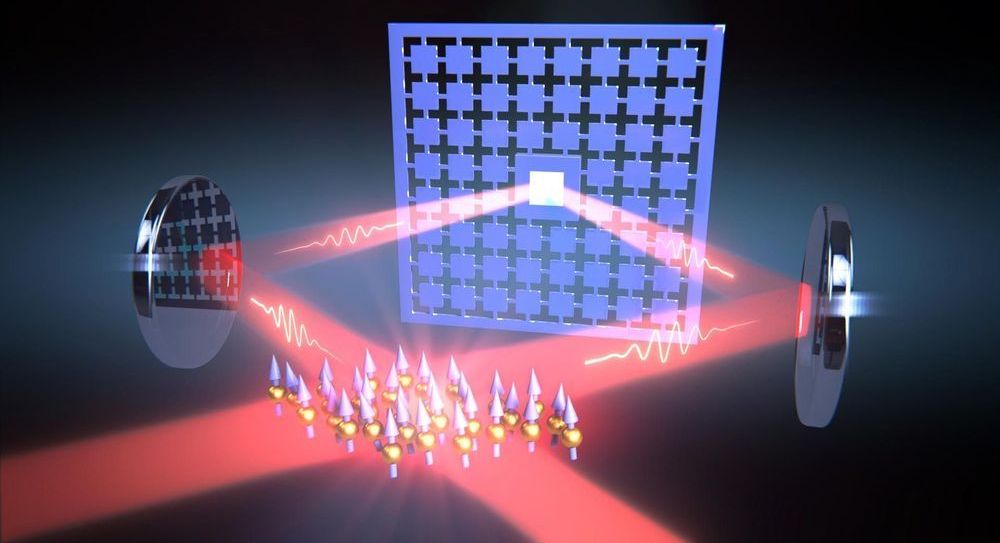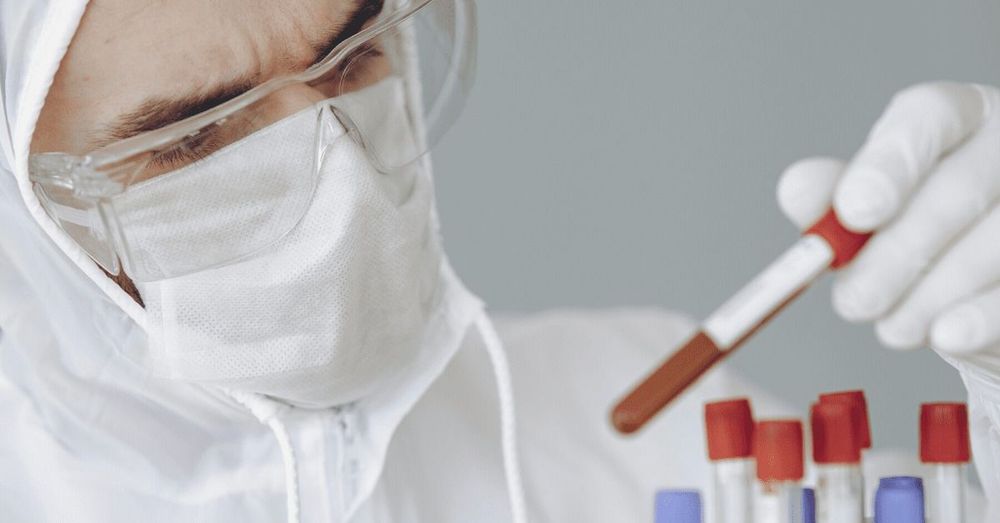
Quantum technology is currently one of the most active fields of research worldwide. It takes advantage of the special properties of quantum mechanical states of atoms, light, or nanostructures to develop, for example, novel sensors for medicine and navigation, networks for information processing and powerful simulators for materials sciences. Generating these quantum states normally requires a strong interaction between the systems involved, such as between several atoms or nanostructures.
Until now, however, sufficiently strong interactions were limited to short distances. Typically, two systems had to be placed close to each other on the same chip at low temperatures or in the same vacuum chamber, where they interact via electrostatic or magnetostatic forces. Coupling them across larger distances, however, is required for many applications such as quantum networks or certain types of sensors.
A team of physicists, led by Professor Philipp Treutlein from the Department of Physics at the University of Basel and the Swiss Nanoscience Institute (SNI), has now succeeded for the first time in creating strong coupling between two systems over a greater distance across a room temperature environment. In their experiment, the researchers used laser light to couple the vibrations of a 100 nanometer thin membrane to the motion of the spin of atoms over a distance of one meter. As a result, each vibration of the membrane sets the spin of the atoms in motion and vice versa.


















